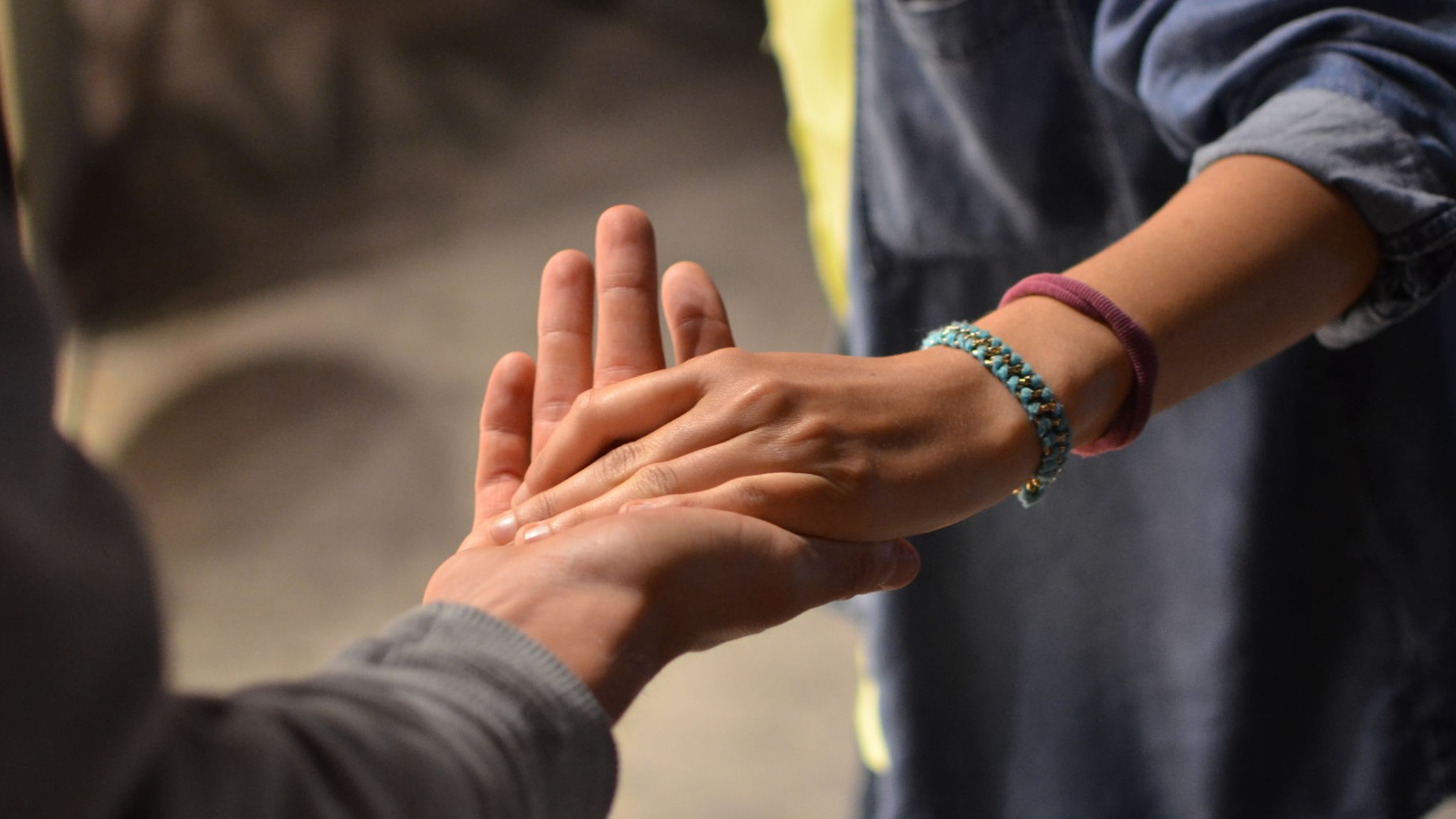The Abhayaratna Trust has seen the potential in developing a network of local support for elderly and unwell members of the Triratna Buddhist Order. It’s another step in our encouraging a consistent culture of care in the Triratna Community.
Why do we need consistency?
Between 1976 and 2017, the average age at ordination doubled to the mid-fifties. As we age, we become more susceptible to infirmity, illness and disability. Mahasraddha, director of The Abhayaratna Trust, believes: ‘The Order is, and has been, good at responding to individual Order members in need on an ad hoc basis, but when you look at our demographic time bomb, this approach may well not meet the expected increase in care needs of Order members in the near future. Added to this is the fact that many members, including pioneers who devoted most of their working lives to building the Order and Movement, have few financial resources.’
Action is required
The Local Care Network pilot projects that have happened around the UK aimed to help the Order develop more explicit and organised frameworks of care and support for Order members who need it, including accessing financial assistance and other services. The Networks help to reinforce the existing culture of care in our community, and create a framework that will allow us to support Order members for generations to come.
If you are interested in getting involved in a pilot in your Centre, or discussing ideas you have for care in the Order, please contact Mahasraddha (mahasraddha@abhayaratnatrust.org), director of the Abhayaratna Trust.
Maniprbha on caring for Shraddhapushpa
On the topic of care and support in sanghas, Mahasraddha recently engaged in conversation with Maniprabha, who was part of a small group of people in London looking after Shraddhapushpa towards the end of her life. It’s a deeply moving and inspiring story of people coming together to provide care and support for an Order member.
Meditation in action interview with Aryasuri
Local Care Networks, an initiative of the Abhayaratna Trust, have been around for a few years now. The concept is simple: to help local sanghas develop a more explicit, organised, proactive and collective framework of care and support. An important context for the initiative comes from the ageing demographic of the Order and the anticipated increase in support needs which means we may need to be more organised than relying solely on local friends. The LCN initiative will help sanghas prepare for this eventuality. In most sanghas, it will not involve developing anything particularly new but, rather, the rallying of existing resources already in a local sangha.
In this video, Aryasuri, one of the Abhayaratna Trust’s reps in New Zealand, gives a very vibrant account of her thoughts about care in the Order, partly drawn from her experiences of many years as a health care professional. Mahasraddha
You can find more information on the Local Care Network here.
Local Care Network: ‘I think it’s a great project.’ Dhammadinna
The issue of care is becoming more pressing with the changing demographic of the Order. Currently the majority of Order members, outside of India, are in their 50s -60s. And though we made need care at any age, it is more likely as we grow older.
In this video Mahasraddha talks with Dhammadinna about how care is part of the natural fabric of sangha and how something a bit more organised, such as a Local Care Network might help us be more proactive in anticipating peoples needs by drawing resources together and by acting as a channel for the already existing network of Kalyana mitrata.
Why LCNs are a good idea - a conversation with Paramashanti
In 2021, the Abhayaratna Trust launched the Local Care Network (LCN) project with the aim of helping Sanghas develop more organised and effective local frameworks of care, leading to a local culture in which care is more explicit and in which the Sangha participates as a collective.
The LCN project was originally devised in light of the ageing demographic of the Order and the anticipated increase in care and support needs. However, as we have all probably witnessed, care and support related to physical and/or mental health can arise at any age, so the Local Care Network project is actually not age-specific at all, and its ethos is relevant to all age groups.
The LCN project has been piloted in several Triratna Centres in the UK - with international interest too - and the original concept has been further developed to allow Centres to more easily instigate a LCN. Click on the video image to learn more.
How do they work?
The vision which has been piloted in a some UK centres is that a Local Care Network Coordinators Groups is established around Buddhist Centres to give guidance and assistance, with the backing of the Abhayaratna Trust, and local resources such as Age UK and Citizens Advice. Each Local Care Group has the option of using a special software package (Compass), developed by Age UK and the NHS, to guide a care needs assessment and produce a care and support plan for individuals.
Conversations with those living with disability, neurological degenerative diseases and mental health difficulties
An inspiring interview with Vajrin
This interview with Mahasraddha, in which Vajrin talks about an accident that left him permanently in a wheelchair and how this impacted on his Dharma practice and his view on the world, is well worth watching.
Vajrin is clear that it has been a very difficult time, including five major surgical operations during the pandemic. Yet he is articulate and inspiring in explaining how it has also been heart opening and enhanced his capacity for empathy.
To watch or read more of our interviews with Order members living with disability, neurological degenerative diseases and mental health difficulties, click on this link.


